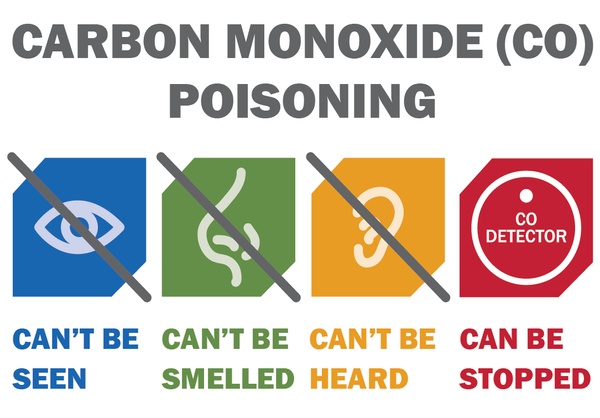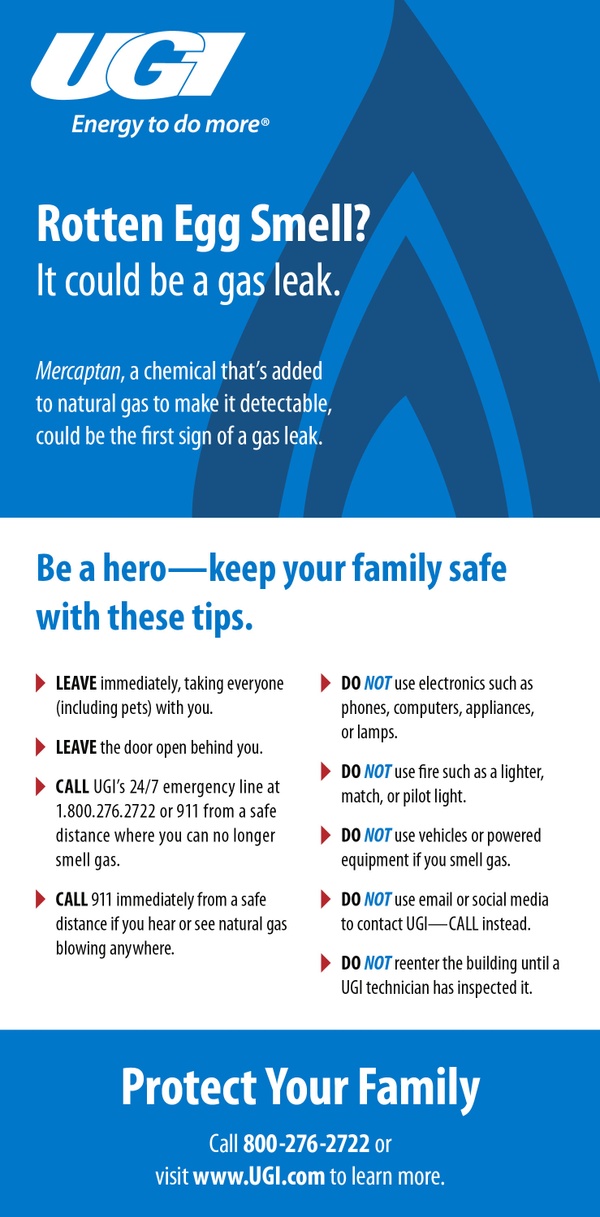As record cold weather is predicted to come into the area this week, UGI encourages residents to ensure home appliances are operating safely and to be aware of the signs of potential issues with their heating system and other equipment.
UGI reminds residents that an odorant that smells like rotten eggs is added to natural gas to assist in detecting a gas leak. If you smell the odor of natural gas, leave the building immediately, taking everyone with you and leaving the door open. Do not use the phone, light a match, or switch anything on or off.
Once in a location where the odor of gas is no longer present, call 911 or UGI from your cell phone or neighbor’s home. UGI’s emergency response number is 1-800-276-2722. UGI will send a service technician to investigate the odor immediately. Emergency response is available 24-hours a day, every day. There is no cost to investigate a report of a gas leak.
UGI also encourages residents to be aware of the signs of a carbon monoxide (CO) build-up. Malfunctioning equipment, as well as blocked vents and chimneys, can be a source of CO.
CO is a colorless, odorless, poisonous gas that is a by-product of the incomplete combustion of fuel. CO poisoning is serious and can be fatal. Individuals who think they might be experiencing symptoms of CO poisoning should immediately seek fresh air and prompt medical attention.
Residents can take a number of steps to ensure the safe operation of appliances. These include the following:
- If you have not already done so, UGI urges customers to have a qualified heating system professional check furnaces, water heaters and other internal combustion appliances. Having an annual check and service of your heating system and appliances will not only allow the unit to run more efficiently and reduce the possibility of a mid-winter breakdown, but it will also ensure the safe operation of the appliance.
- Check that both internal and external combustion air vents are unobstructed. External vents can become blocked by leaves or other debris.
- Make sure working smoke and carbon monoxide detectors are appropriately located within living spaces, and the batteries powering them are fresh. CO detectors/alarms should be located on each floor of a home, including one in each bedroom or sleeping area. It is important to note that CO detectors have a limited operating life. Check the manufacturer’s instructions for related information and replacement considerations.
- Check the connections to your chimney or flue for damage or corrosion. In addition, check for black stains visible on the outside of your chimney or flue. These stains can indicate a blockage. A damaged or blocked chimney could allow exhaust gas, including CO, to enter your home or workplace. Contact a heating professional to have equipment, chimneys and flues checked.
If the heating equipment in your home or business is not working because of an electric power outage, never use an oven or grill inside your home to provide heat.
Signs there may be a build-up of CO in your home include:
- Significant condensation on walls and windows;
- House pets becoming sluggish;
- Chronic odors from a malfunctioning appliance;
- Residents in the home suffering flu-like symptoms or feeling unusually tired.
UGI Utilities has headquarters in Denver, Pennsylvania and serves more than 700,000 customers in 45 Pennsylvania counties and one county in Maryland. Customers interested in additional information visit the UGI website at www.ugi.com; on Facebook at www.facebook.com/ugiutilities; Twitter at www.twitter.com/ugi_utilities.


